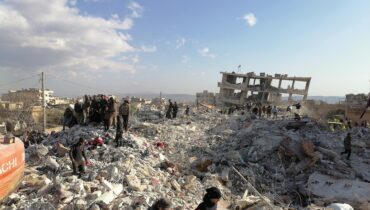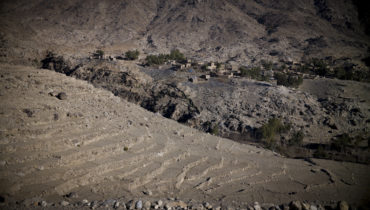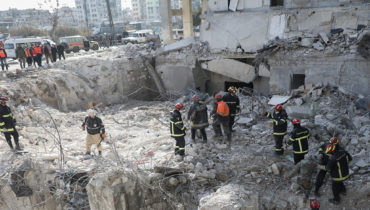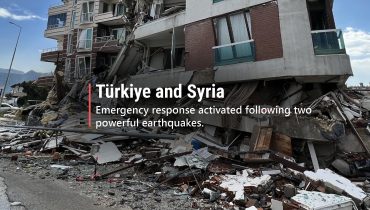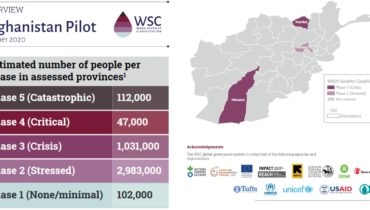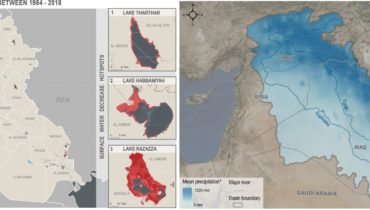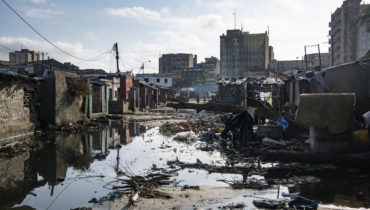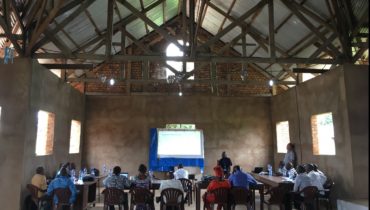REACH contributes to post-Haiyan WASH Baseline Assessment in the Philippines
1 July 2014
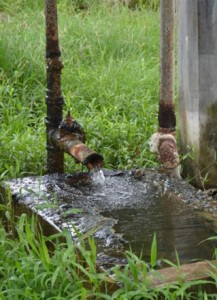 Within hours of first striking the Philippines in November 2013, typhoon Haiyan had made landfall six times across the country’s central regions. By early December, the Government of the Philippines, through its Disaster Response Operations Monitoring and Information Centre, reported that a total of 13,067,342 individuals across 10,701 Barangays in the Central Philippines had been affected by Typhoon Haiyan, including 4,000,965 internally displaced persons. In November 2013, REACH undertook a its first joint rapid Shelter-WASH needs assessment in collaboration with the Shelter and WASH clusters. This joint assessment complemented the Multi-sector Initial Rapid Assessment (MIRA) with the view to inform the Strategic Response Plan. As a follow-up, REACH was mobilized in March 2014 to support a WASH Baseline survey led by the global WASH Cluster Rapid Assessment Team (RAT).
Within hours of first striking the Philippines in November 2013, typhoon Haiyan had made landfall six times across the country’s central regions. By early December, the Government of the Philippines, through its Disaster Response Operations Monitoring and Information Centre, reported that a total of 13,067,342 individuals across 10,701 Barangays in the Central Philippines had been affected by Typhoon Haiyan, including 4,000,965 internally displaced persons. In November 2013, REACH undertook a its first joint rapid Shelter-WASH needs assessment in collaboration with the Shelter and WASH clusters. This joint assessment complemented the Multi-sector Initial Rapid Assessment (MIRA) with the view to inform the Strategic Response Plan. As a follow-up, REACH was mobilized in March 2014 to support a WASH Baseline survey led by the global WASH Cluster Rapid Assessment Team (RAT).
The WASH baseline survey, funded by UNICEF, was carried out in two phases to cover 81 municipalities. The first phase, in March 2014, covered 30 municipalities in Leyte, Samar and Cebu. Key findings were disseminated among WASH sector partners in April 2014. The second phase covered the remaining 51 municipalities in Leyte and Cebu plus Eastern Samar, Iloilo and Capiz, and took place in April and May 2014. The Technical Report ‘Water and Sanitation Access pre and post Haiyan and WASH Emergency Assistance’ and related annexes are the main outcomes from the baseline survey. The report presents the assessment methodology and key findings, explains the technical terminology, and how best to utilise and build upon the WASH sector findings. This baseline data will now be linked with the WASH cluster 3W (Who, What, Where) data to facilitate a more in-depth sectoral response gap analysis. For information about other REACH activities in the Philippines, check out the dedicated country page.
 | The Philippines National WASH Cluster is co-led by the Department of Health and UNICEF. For this response, a total of 25+ international and local partners coming from government and civil society continue to be actively engaged in the WASH cluster both at national and sub-national levels. See more at the WASH Cluster page |
|---|---|
 | The global WASH Cluster Rapid Assessment Team (RAT) is a consortium of active WASH agencies (CARE, IFRC and OXFAM) which deploys in the early stages of major emergencies or crises, to provide a rapid assessment of WASH needs to all stakeholders. See more at http://www.washcluster.info |


